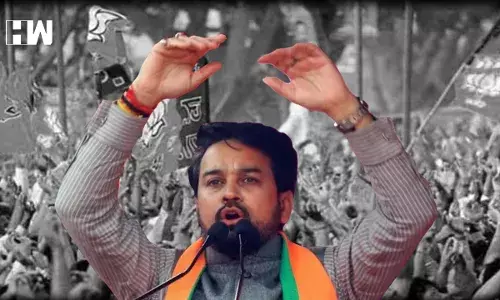In remarks that have triggered a social media meltdown of users thereby creating a meme-fest, the Delhi High Court Friday, in a case related to alleged hate speeches connected to the Northeast Delhi riots, said that a speech given during election time is different from one given during ordinary times and sometimes things are said just to create a ‘mahaul’ (atmosphere) without there being the intention.
If something is said with a smile, then there is no criminality but if something is said offensively, then there may be criminality, f something is said with a smile, then there is no criminality but if something is said offensively, then there may be criminality. CPI(M) leader Brinda Karat had filed a petition against a lower court order in which the prayer for registration of FIR against Union Minister Anurag Thakur and MP Parvesh Verma for their alleged hate speech was declined. The High Court was hearing the same petition when the aforementioned remarks were made.
“Were they election speeches? Was that an election speech or speech in ordinary time? If any speech is given during election time, then it’s a different thing. If you’re giving a speech in the ordinary course, then it is instigating something. In the election speech, so many things are said by politicians to politicians… that is also a wrong but I have to see the criminality of the act,” said the court.
“If you’re saying something with a smile then there is no criminality, if you’re saying something offensively then criminality. You have to check and balance. Otherwise, I think 1,000 FIRs may be lodged against all politicians during elections.”
“Because we are also in democratic … you also have the right to speech and all these things. When and at what time that speech was delivered and what was the intention? Only intention to win the election or intention to instigate the public to do the crime. Both are two different things, then we have to (apply) mens rea,” said the bench.
The court, in reference to a submission pertaining to Verma’s statement, in which he had allegedly said “ye log aapke gharon mein ghusenge aapki betiyun ko uthainge aur unko rape karenge…”, asked who ‘yeh loug’ indicates in it and how petitioners were concluding that it referred to the particular community. Responding to the same, advocate representing petitioner Adit Pujari said it was made in the context of Shaheen Bagh.
The Delhi HC asked if only one particular community was in the protest. “Where is that material? Because if you’re saying that protest is only for one particular community and another community is not supporting the agitation, are you suggesting that?” asked the court. The court also questioned if that agitation was supported by all other citizens of this country, how the petitioners can contend that the speech was directed towards only one community.
Whether it is election or no election, there is “some kind of instigation” in the statements, Pujari responded.
It was making the observations in general and not particularly in reference to the case, the court said, adding: “Suppose you have said something just for creating mahaul (atmosphere) and all this, I think there is no mens rea because some other political parties say something else. Everybody is addressing their constituencies and mobilising their constituents. That speech has been done for the purpose of mobilising the constituency.”
The court on Friday reserved its judgment on Karat’s petition.
As an independent media platform, we do not take advertisements from governments and corporate houses. It is you, our readers, who have supported us on our journey to do honest and unbiased journalism. Please contribute, so that we can continue to do the same in future.

